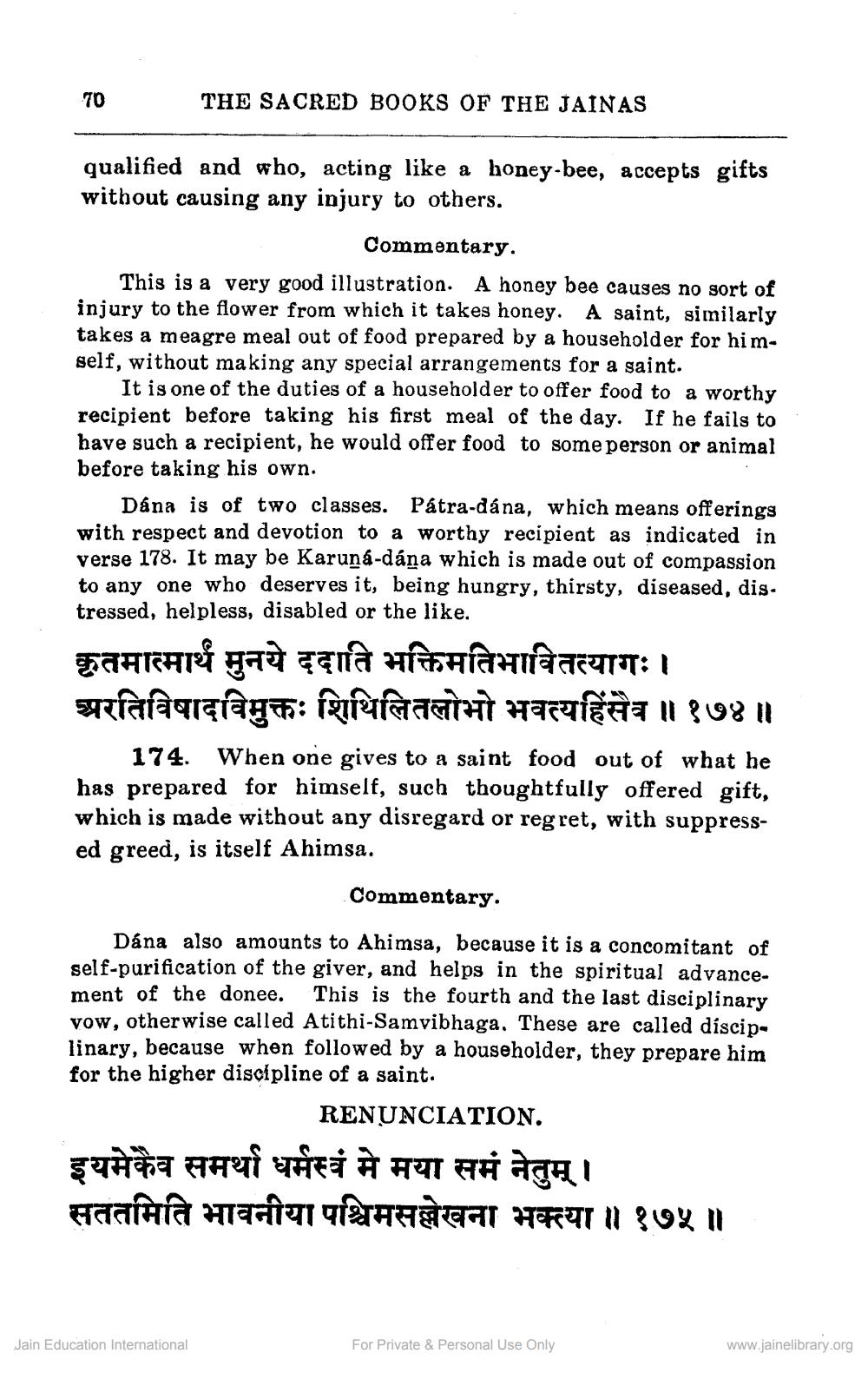________________
70
THE SACRED BOOKS OF THE JAINAS
qualified and who, acting like a honey-bee, accepts gifts without causing any injury to others.
Commentary.
This is a very good illustration. A honey bee causes no sort of injury to the flower from which it takes honey. A saint, similarly takes a meagre meal out of food prepared by a householder for himself, without making any special arrangements for a saint.
It is one of the duties of a householder to offer food to a worthy recipient before taking his first meal of the day. If he fails to have such a recipient, he would offer food to some person or animal before taking his own.
Dána is of two classes. Pátra-dána, which means offerings with respect and devotion to a worthy recipient as indicated in Verse 178. It may be Karuna-dána which is made out of compassion to any one who deserves it, being hungry, thirsty, diseased, distressed, helpless, disabled or the like. कृतमात्मार्थं मुनये ददाति भक्तिमतिभावितत्यागः। अरतिविषादविमुक्तः शिथिलितलोभो भवत्यहिंसैव ॥१७४॥
174. When one gives to a saint food out of what he has prepared for himself, such thoughtfully offered gift, which is made without any disregard or regret, with suppressed greed, is itself Ahimsa.
Commentary.
Dána also amounts to Ahimsa, because it is a concomitant of self-purification of the giver, and helps in the spiritual advance. ment of the donee. This is the fourth and the last disciplinary vow, otherwise called Atithi-Samvibhaga. These are called díscip. linary, because when followed by a householder, they prepare him for the higher discipline of a saint.
RENUNCIATION.
इयमेकैव समर्था धर्मस्वं मे मया समं नेतुम् । सततमिति भावनीया पश्चिमसल्लेखना भक्त्या ॥ १७५॥
Jain Education International
For Private & Personal Use Only
www.jainelibrary.org




